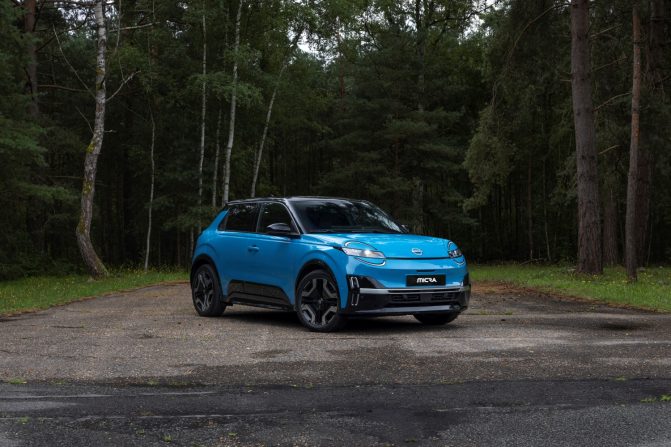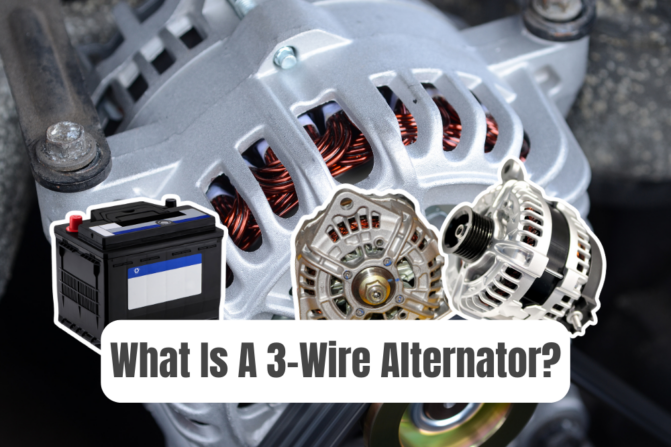In a significant turn for electric mobility, especially for enthusiasts across Nigeria, Ghana, and the West African region, Nissan has introduced its all-new 6th-generation Micra EV. This highly anticipated release marks a new chapter for affordable electric vehicles, offering local drivers more options as global EV adoption gains ground. For context, the new Micra builds on the same platform as the Renault 5 EV—its European counterpart—but carries Nissan’s distinctive styling and engineering suited for contemporary urban needs.
Nigerian auto importers and buyers are no strangers to the Micra name. Known locally for its resilience and cost-effectiveness, the latest version takes a major leap into electrification. Beginning September 1st, UK customers can place orders for the Micra EV at a starting price of £22,995. Although Nigeria’s auto market faces unique challenges—import duties, exchange rate pressures, and charging infrastructure gaps—this price point signals the growing feasibility of EVs even on African soil, as used imports and new models often make their way to Lagos, Abuja, Accra, and beyond.
Nissan Sets the Bar for Entry-Level EVs in West Africa?
What’s truly game-changing about the new Micra is its low barrier to entry. Globally, EVs remain out of reach for many buyers due to high sticker prices. Nissan’s approach addresses this challenge by offering both affordability and features local drivers expect. Analysts in the Nigerian automotive import business shared that “a sub-£23,000 EV from a global brand like Nissan could accelerate adoption, especially as West African markets shift away from petrol and diesel vehicles.”
The model comes in various trims and two battery sizes—a 40 kWh pack and a longer-range 52 kWh option. According to Nissan’s revised figures, drivers can expect up to 198 miles of range with the smaller battery, and up to 260 miles with the 52 kWh pack, after additional testing. For Lagos traffic, busy Abuja commutes, or even interstate journeys from Accra to Kumasi, that puts the Micra’s range solidly ahead of many older EV imports on Nigerian or Ghanaian roads.
Charging Ahead: Features that Matter for African Drivers
Understanding the realities of power availability and infrastructure in Africa, efficient charging and thermal management are critical. Nissan has equipped the new Micra with battery conditioning—both heating and cooling—along with a heat pump as standard, ensuring that drivers retain maximum battery life in diverse climates. Fast-charging is also supported: the larger battery accepts DC charging up to 100 kW, allowing a quick top-up from 15% to 80% in just about half an hour (as per Nissan). For those relying on home or public chargers in Nigeria, this feature could save precious time and reduce “range anxiety”—a major barrier to EV adoption across Africa.
An emphasis on aerodynamics—nicknamed by Nissan as the “gelato scoop” contouring—and subtle design updates reportedly improved the Micra’s range by 6–7 miles compared to previous figures, without altering the base hardware. While these may seem modest, every additional kilometre matters in areas where chargers are scarce and intercity trips can be lengthy.
Smart Connectivity & Tech for Everyday Convenience
Beyond the core driving features, Nissan places a strong focus on digital convenience in the Micra. Integration with NissanConnect Services brings Google functionality built in, alongside routing that displays available charging points on the map—critical for drivers in cities like Lagos or Kumasi, where charging spots are still emerging. Additional smart features let you schedule charging sessions remotely, pre-condition your car’s cabin before you get in (a big win in Nigeria’s hot midday sun), and, for longer drives, the battery management software can auto-adjust for optimal fast-charging. These are features that move EVs from “novelty” to viable, everyday tools for African urban mobility.
With digital platforms central to youthful West African markets and smartphone-savvy drivers, Nissan’s move to make the car as “connected” as possible will likely resonate. Tech enthusiasts and ride-hailing drivers alike will appreciate having these modern amenities at their fingertips, meeting lifestyle needs as much as transport ones.
How Does the Pricing Stack Up Locally?
For many Nigerian buyers, price is a top concern, particularly with the recent rise in import costs and fluctuating forex rates. The base Micra Engage (40 kWh) model launching at £22,995 is compelling, as comparable EVs often retail for much higher. The Advance (40 kWh) comes in at £24,995, while the Advance (52 kWh) goes for £26,995, and the Evolve (52 kWh) tops out at £29,865. UK buyers may benefit from a £1,500 EV grant, further reducing the entry cost. Although incentives may vary or be unavailable in Nigeria, local distributors and parallel importers often pass on savings from such grants indirectly, making it relevant for price-sensitive markets. For context, most imported new or nearly-new EVs fetch prices much higher than petrol equivalents, making the Micra’s sticker price notable for Nigerians and Ghanaians.
What’s Standard? Features African Drivers Can Expect
Standard equipment on the Micra even at entry level puts it ahead of many competitors. Drivers will find a 10.1-inch infotainment system, built-in heat pump, and Nissan’s connected services suite all included, eliminating the need to pay premium for tech basics. Mid-level and top trims introduce comfort and safety improvements: adaptive cruise control with stop-and-go traffic capability (useful in Lagos gridlock or Accra morning rush), a wireless charging pad, Harman Kardon premium audio, one-pedal driving for easier city stops, heated seats and steering, as well as the ProPILOT ADAS suite. These features, typically optional or unavailable on older cars plying West African roads, are now part of an emerging trend—high-tech, electric, and value driven.
Can Electric Vehicles Really Take Off in Nigeria and Ghana?
While the new Micra represents a leap forward in affordability and technology, EV adoption in Africa still faces significant infrastructural and regulatory challenges. Nigeria and Ghana have made recent strides, with Lagos launching pilot schemes for electric buses, and Accra incentivizing clean transport. Power stability, accessible charging, and cost-effective servicing remain hurdles, which analysts say will take coordinated government and private sector effort to solve. Yet, with models like the Micra now setting new benchmarks for pricing and real-world utility, optimism is rising among both drivers and policy-makers.
Local experts recommend that governments consider reduced import tariffs for electric vehicles, offer tax rebates to early adopters, and invest in public charging infrastructure. As the used EV market develops, cars like the Micra EV could become widely accessible across Nigeria and Ghana, not only for personal use but in mobility services such as ride hailing, school runs, and delivery fleets.
Looking Ahead: Is the New Micra Right for You?
If you’re contemplating joining the electric vehicle movement in Nigeria, Ghana, or anywhere in West Africa, the all-new Nissan Micra is worth a serious look. It’s competitively priced for a global brand, equipped with technology that suits local realities, and promises enough range and charging speed for daily urban commuting. Prospective buyers should still factor in current infrastructure limitations and seek advice from local EV networks or distributors for hands-on information. As one leading Lagos-based EV importer explained, “Cars like the Micra EV could be the key that unlocks mass adoption, provided we see more investment in reliable electricity and public charging.”
With the automotive landscape in Africa changing quickly and global brands introducing more electric models, the 6th-generation Nissan Micra is already turning heads far beyond the UK. How soon will we see it on Nigerian or Ghanaian streets in large numbers? That depends on both consumer enthusiasm and how quickly stakeholders address infrastructure gaps—but the electric future appears closer than ever.
Are you excited to see affordable electric cars like the Nissan Micra on West African roads? What are the challenges and opportunities you foresee for EVs in Nigeria and Ghana? Share your thoughts and experiences in the comments, and don’t forget to follow us for more updates on automotive trends, new tech, and the latest car news across Africa.
For general questions or support, reach out at support@nowahalazone.com.
Join our car enthusiasts’ community on Facebook, X (Twitter), and Instagram for breaking news, real-life reviews, and tips for drivers across Africa!










